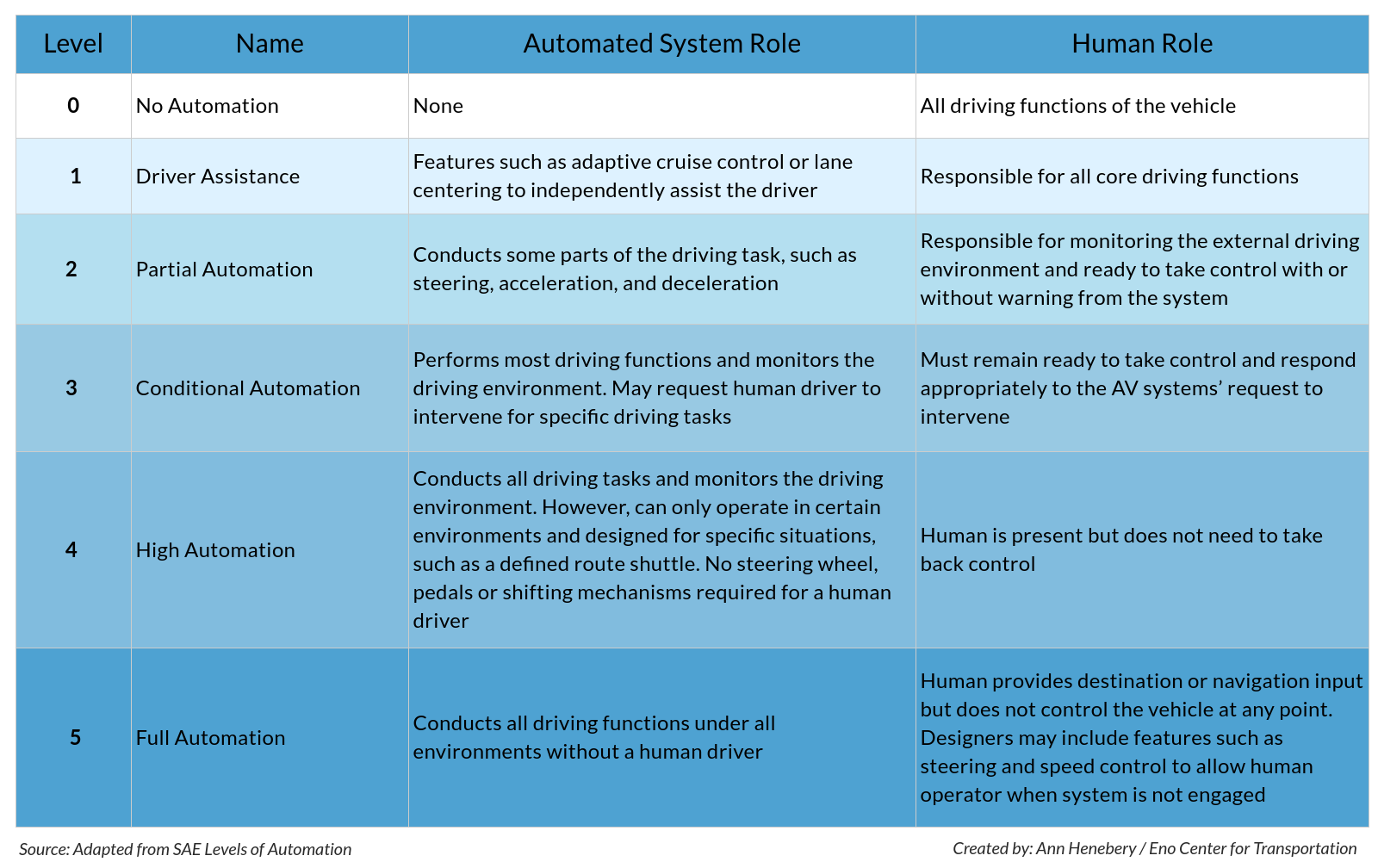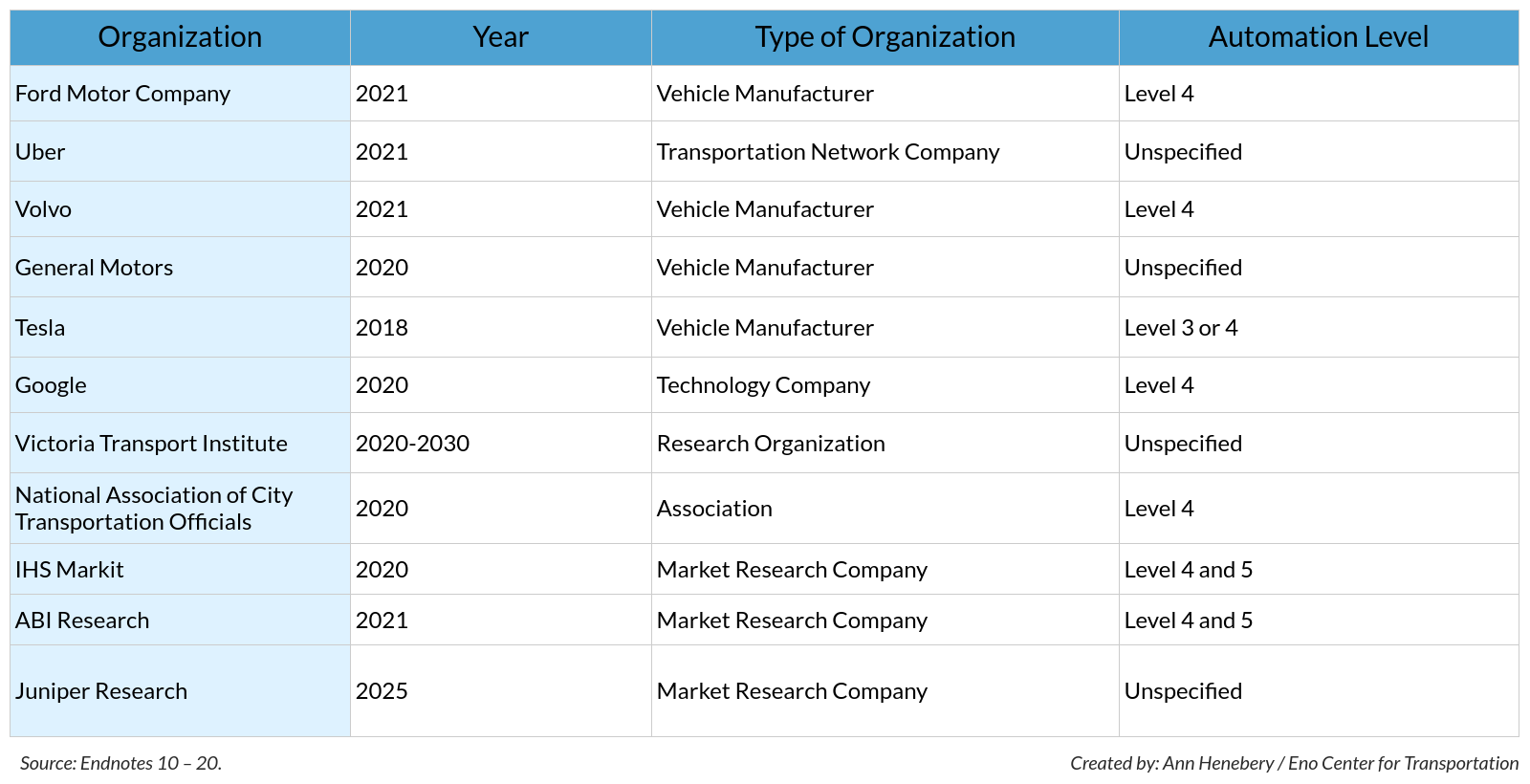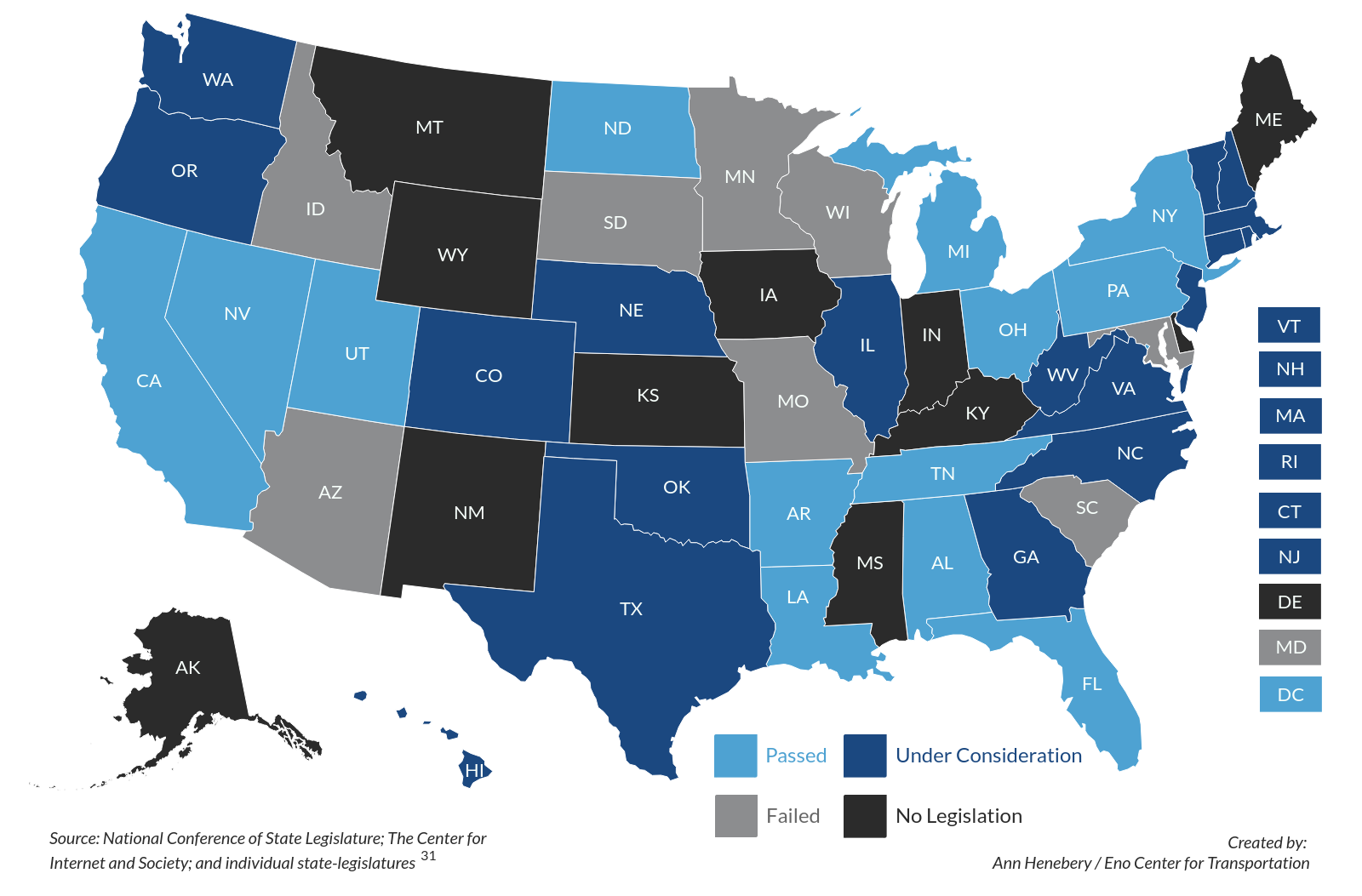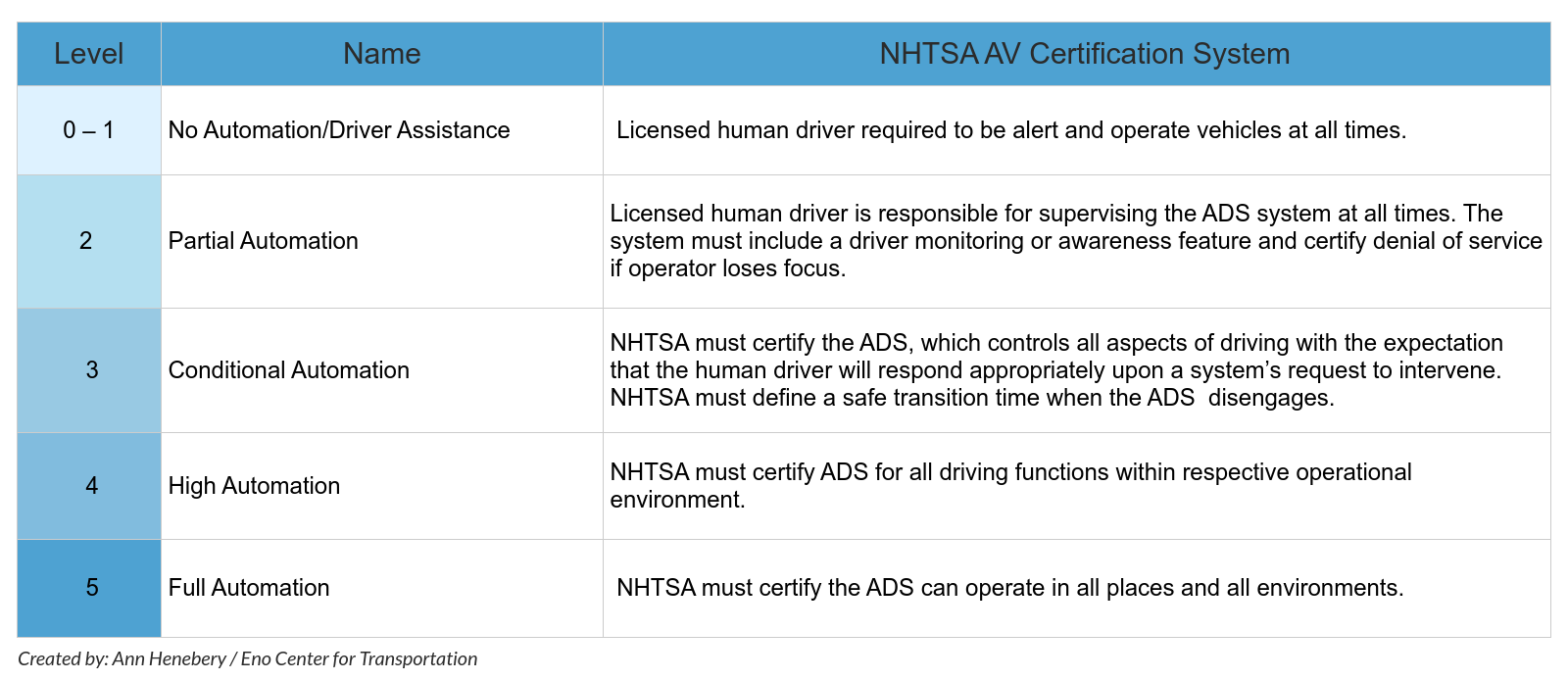Automated vehicle (AV) technology has the potential to completely change how we travel, how we ship goods, and on a larger scale, how we think about mobility. While fully automated vehicles are not yet commercially available, the technology is developing rapidly and some robotic driving functions are already on public roads today. Nevertheless, the challenges and potential of this technology have not been fully realized or addressed by many policymakers.
The uncertainty and newness of the technology means that governments are under pressure to craft regulations and make investments that encourage innovation while still protecting the public interest. Thirty-eight states have proposed or enacted a variety of AV policies, resulting in a patchwork of laws and regulations that are often inconsistent – if not outright contradictory. Last year, the National Highway Traffic Safety Administration (NHTSA) developed its Federal Automated Vehicles Policy, the first step in creating a basis for industry leaders and governments to work together on developing and instituting AV policy.
Through a series of panel discussions, workshops, webinars, and consultation with Eno’s Digital Cities Advisory Board, Eno crafted a multifaceted set of recommendations that address the most pressing policy issues for AVs. If applied and executed properly, these recommendations will help guide this technology towards safe, efficient, and sustainable deployment.
The report provides eighteen specific recommendations aimed at the following issues: (Click link to jump down to recommendations)
Recommendations
Certification, Liability, and Insurance
- Congress should pass legislation allowing NHTSA to issue system certifications to the technology in self-driving vehicles
- NHTSA should support the harmonization of state tort laws that explicitly align liability with the certifications and roles of the ADS and the licensed human driver
- States should create stakeholder working groups to oversee the development of laws
Cybersecurity and Data Ownership
- NHTSA should explicitly define that the ownership of the vehicle’s data corresponds to the operator of the vehicle
- Congress should explicitly require the AV industry to protect the privacy of vehicle owners
- Congress should define AV developers’ limited liability for crashes that result from a security breach
- Cities and states should establish data sharing agreements to enhance local transportation planning and operations
- States and cities should update laws that prohibit and punish any deceiving or disabling of AV communications
Infrastructure and Funding
- Congress should develop a per-mile charge fee system on vehicles that are operating with a non-human certification
- States and localities should invest in robust “state of good repair” programs that facilitate the semi-automated features already available on some cars
Vehicle Connectivity
- The Federal Communications Commission should maintain the existing spectrum for connected vehicles
- NHTSA should continue to work closely with the automotive industry on standards for V2V and V2I communications
Federal Safety Programs
- Congress should make AV technologies eligible for federal safety programs to improve transportation operations
Environmental Programs
- Congress should create a federal transportation discretionary grant program that targets projects that meet both environmental and accessibility goals
- Cities, counties, metropolitan planning organizations (MPOs), and state Departments of Transportation should examine and include the potential impacts of AVs on regional transportation systems in their long-range plans
- States and cities should consider using pricing to mitigate negative externalities of AVs
Research Investment
- States and cities should fund AV research programs at local universities
Workforce Development
- Federal, state, and local governments should work with academic institutions to retrain workers for jobs lost to automation
This report provides a clear and robust policy wireframe for federal, state, and local governments. It is designed to evolve with the aspects of the technology that are more sensitive to change, such as vehicle connectivity, cyber security, and certification. At the same time, it provides a stable framework for industries that go through a slower pace of transformation, particularly those tied to insurance, law, infrastructure, and the workforce as a whole.
Sound public policy is an essential component in preparing for the eventual deployment of AVs. Accordingly, policymakers must address AVs in a responsible and well-thought out manner that will guide them to their full potential while also maintaining the interests and safety of all road users.
Eno’s Digital Cities project is a multi-part research and outreach effort intended to provide a resource for policymakers to understand the technological forces that are shaping our transportation networks. To learn more, visit the Digital Cities webpage here.
Download the Beyond Speculation webinar slidedeck here.
Classification System for Vehicle Levels of Automation

Expected Commercial Availability of Level 3 or Higher Vehicle Automation, by Select Organization

Status of State Legislation Related to Automated Driving, April 2017

Certification Levels for Automated Driving Systems (ADS)







